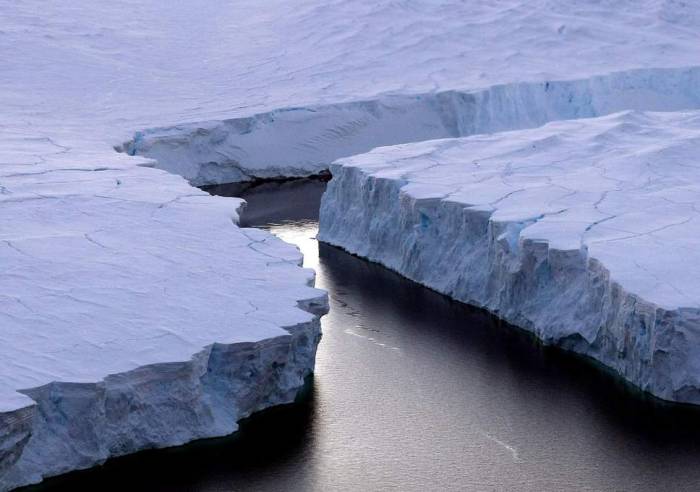The discovery could be a rare silver lining in the story of the melting polar regions, as the bedrock has the potential to protect ice from warm seawater melting it from below, potentially buying more time to stop the ice sheet collapsing altogether.
Projections suggest melting ice from Antarctica will cause a sea level rise of 15cm by the end of the century, a change that would leave coastal cities at high risk of flooding.
Scientists are particularly concerned about the West Antarctic ice sheet, which contributes to a quarter of global melting from land ice every year.
If it were ever lost entirely, the sheet – which is thought to be at risk of catastrophic collapse – would contribute to over 3m of sea-level rise.
In a new study, an international research team were surprised to find the speed at which the ground beneath the ice sheet was rebounding far faster than they had previously imagined.
“The rate of uplift we found is unusual and very surprising. It’s a game changer,” said Professor Terry Wilson, one of the leaders of the study at Ohio State University.
When loaded with ice, the rock underneath it is compressed, and when this burden is removed it bounces up like a spring, moving it further from the warm sea water melting its underside.
The rate at which this happens it determined by the mantle – the rocky layer of earth underneath the crust – and an analysis of this layer by the research team found it was far hotter and more fluid than previously thought.
This meant the upward movement of the ice sheet can happen over a timescale of centuries or even decades, rather than thousands of years.
“This very rapid uplift may slow the runaway wasting and eventual collapse of the ice sheet,” said Professor Rick Aster, a co-author of the study from Colorado State University.
“The uplift tends to stabilise the critical grounding line where the ice sheet loses contact with underlying bedrock or sediment and goes afloat.”
Overall, the bedrock was rising by over four centimetres every year, one of the fastest rates ever recorded in icy areas.
These findings, based on GPS data gathered from the Antarctic surface, were published in the journal Science.
Professor Wilson said: “We previously thought uplift would occur over thousands of years at a very slow rate, not enough to have a stabilising effect on the ice sheet. Our results suggest the stabilising effect may only take decades”.
Due to the massive quantities of water stored in the West Antarctic ice sheet, news of its increased stability should be good news – especially for those living in the northern hemisphere, where melting Antarctic ice would have a disproportionate effect on local sea levels.
However, scientists who were not involved in the research have warned that that this effect is “not a get out of jail free card”.
“It’s still a rather slow process compared to melting,” Dr Ingo Sasgen, a geophysicist at the Alfred Wegener Institute told Science.
“If you have a very strong warming from the ocean, the ice sheet will disintegrate whatever the solid earth does.”
A recent landmark study revealed Antarctica was melting faster than ever before, and lost about three trillion tonnes of ice in the last 25 years.
Professor Aster agreed that there was no room for complacency and if global warming is as intense as current simulations suggest, the West Antarctic ice sheet is still likely to melt.
“To keep global sea levels from rising more than a few feet during this century and beyond, we must still limit greenhouse gas concentrations in the atmosphere, which can only occur through international cooperation and innovation,” he said.
The Independent
More about: Antarctica















































